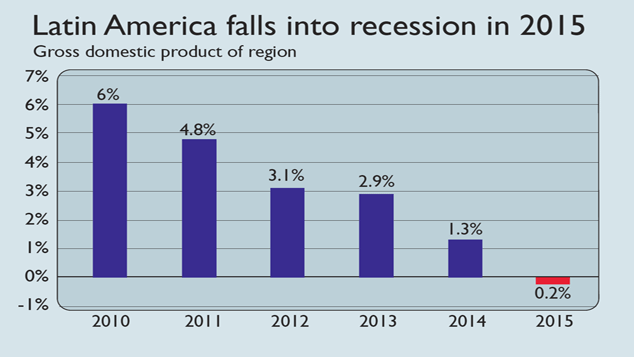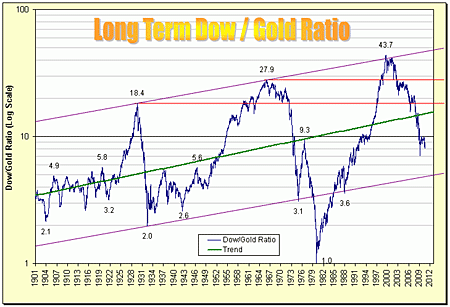Better times ahead for the unloved UK?
Inflation is improving and economic forecasts are rising for the UK economy

- Inflation is improving and economic forecasts are rising for the UK economy
- Sentiment remains weak for the UK market, with significant outflows
- Many UK companies continue to deliver operational performance ahead of expectations
There are more promising signs emerging on the UK economy, with inflation finally falling and the International Monetary Fund (IMF) predicting that it will side-step a recession in 2023. Yet the UK market remains stubbornly unloved, with investors continuing to exit, even amid cheap valuations and sound earnings prospects. What could turn the tide for sentiment in the UK?
In May, the UK All Companies sector saw £916 million in outflows. The UK All Companies, UK Equity Income and UK Smaller Companies sector accounted for 86% of the overall outflows from equity funds over the month, capping a trend that has become increasingly persistent in recent months. It shows that despite better news on the UK economy, the UK market continues to be out of favour with investors.
It's not just the economy that is stronger than expected, many UK companies continue to deliver operational performance ahead of expectations. Abby Glennie, manager of abrdn UK Smaller Companies Growth Trust, says the direction of earnings has historically been a good indicator of market levels: “We saw a turn in earnings revisions at the end of last year. This is usually a good sign.”
MoneyWeek
Subscribe to MoneyWeek today and get your first six magazine issues absolutely FREE

Sign up to Money Morning
Don't miss the latest investment and personal finances news, market analysis, plus money-saving tips with our free twice-daily newsletter
Don't miss the latest investment and personal finances news, market analysis, plus money-saving tips with our free twice-daily newsletter
“In the UK small and mid cap space where we operate, we continue to see good reporting out of the companies we hold, delivering in line or ahead of expectations. There may be some economic question marks, but we hope to see further upgrades.”
This mismatch between share price performance and operational performance has left the UK market looking cheap relative to its own history, and to its international peers. Rebecca Maclean, co-manager of Dunedin Income Growth Investment Trust, says: “The UK certainly looks cheap compared to the rest of the world, but it is also obviously cheap compared to its own history as well. Its dividend yield is twice that of the US market.”
“We are increasingly seeing valuation anomalies, and a disconnect between what we hear from management teams and what the market is saying about companies in terms of valuations. It is an interesting time to look at this market afresh.”
Innovative companies
The UK market continues to struggle with a few myths. Notably, that it is all about a handful of cyclical, old economy mining and energy names. Maclean says that the mid cap space in particular is far more vibrant than it is given credit for, with a raft of innovative businesses, demonstrating technology leadership.
Rebecca says that the sell-off in UK stock markets has created opportunities to buy good quality dividend-paying companies at lower prices. She points to Games Workshop, which derated significantly in 2022, alongside the high technology tools manufacturer Oxford Instruments and the accounting software provider Sage, which offer attractive growth prospects. These companies are held in the Dunedin Income Growth Investment Trust.
Glennie highlights a number of recent purchases in the abrdn UK Smaller Companies Growth Trust portfolio that demonstrate this innovation: Alpha Group, for example, helps companies to manage their FX exposure, while also providing alternative banking solutions and Hill & Smith is exposed to US infrastructure development.
Iain Pyle, manager of Shires Income, is also taking advantage of this derating of good quality growth companies: “Given the rise in discount rates, we have been buying into strong growth companies with compelling valuations. There has also been severe weakness in UK cyclicals. While there is some near-term earnings volatility, a lot of that volatility is reflected in the price.” With this in mind, he has recently been buying National Grid, which is playing a vital role in the energy transition.
A sentiment problem
If the UK market is cheap, earnings are improving and there are compelling growth opportunities, why isn’t it getting more attention? It is tough to predict when a market will turn, and the UK has been out of favour for some time. Nevertheless, it is already pricing in a difficult economic scenario that may not transpire. The economic forecasts have been improving and eventually, investors may catch up with reality.
The shift in the interest rate environment might make a difference. Pyle says: “The S&P 500 delivered 4x more value in the past 15 years than in the previous 100. This was driven by a handful of growth stocks and long duration assets. It is highly unlikely that we will get the same cuts in bond yields from here. With this in mind, there is no reason to believe the next 15 years will be like the last.” This would favour a different type of stock, refocus investors on fundamentals, and could be a better environment for the UK market.
In particular, it should focus investor attention on dividends and this has long been a key selling point for the UK market. Its dividend yield continues to look attractive relative to other major markets and it is possible to find plenty of companies delivering compelling, above-inflation dividend growth. This may get it noticed in the longer-term. Glennie points out that even after difficult periods, markets can recover very quickly: “The time to reach new market highs has often not been very long, from 12 months to two years.”
While it is difficult to time a change in sentiment, all the conditions are in place for a reappraisal of UK markets from investors. There are still economic challenges, which argues for a focus on quality companies, but opportunities are increasingly abundant. The UK market may finally be coming in from the cold.
Companies selected for illustrative purposes only to demonstrate the investment management style described herein and not as an investment recommendation or indication of future performance.
Important information
- Risk factors you should consider prior to investing:
- The value of investments, and the income from them, can go down as well as up and investors may get back less than the amount invested.
- Past performance is not a guide to future results.
- Investment in the Company may not be appropriate for investors who plan to withdraw their money within 5 years.
- There is no guarantee that the market price of the Company’s shares will fully reflect their underlying Net Asset Value.
- As with all stock exchange investments the value of the Trust shares purchased will immediately fall by the difference between the buying and selling prices, the bid-offer spread. If trading volumes fall, the bid-offer spread can widen.
- The Company may borrow to finance further investment (gearing). The use of gearing is likely to lead to volatility in the Net Asset Value (NAV) meaning that any movement in the value of the company’s assets will result in a magnified movement in the NAV.
- The Company may accumulate investment positions which represent more than normal trading volumes which may make it difficult to realise investments and may lead to volatility in the market price of the Company’s shares.
- Yields are estimated figures and may fluctuate, there are no guarantees that future dividends will match or exceed historic dividends and certain investors may be subject to further tax on dividends.
- The Company may charge expenses to capital which may erode the capital value of the investment.
- The Alternative Investment Market (AIM) is a flexible, international market that offers small and growing companies the benefits of trading on a world-class public market within a regulatory environment designed specifically for them. AIM is owned and operated by the London Stock Exchange. Companies that trade on AIM may be harder to buy and sell than larger companies and their share prices may move up and down very sharply because they have lower trading volumes and also because of the nature of the companies themselves. In times of economic difficulty, companies listed on AIM could fail altogether and you could lose all your money.
- The Company invests in smaller companies which are likely to carry a higher degree of risk than larger companies.
- Specialist funds which invest in small markets or sectors of industry are likely to be more volatile than more diversified trusts.
- Derivatives may be used, subject to restrictions set out for the Company, in order to manage risk and generate income. The market in derivatives can be volatile and there is a higher than average risk of loss.
- Certain trusts may seek to invest in higher yielding securities such as bonds, which are subject to credit risk, market price risk and interest rate risk. Unlike income from a single bond, the level of income from an investment trust is not fixed and may fluctuate.
Other important information:
Issued by abrdn Fund Managers Limited, registered in England and Wales (740118) at 280 Bishopsgate, London EC2M 4AG. abrdn Investments Limited, registered in Scotland (No. 108419), 10 Queen’s Terrace, Aberdeen AB10 1XL. Both companies are authorised and regulated by the Financial Conduct Authority in the UK.
Find out more at www.abrdnuksmallercompaniesgrowthtrust.co.uk, www.dunedinincomegrowth.co.uk and www.shiresincome.co.uk or by registering for updates. You can also follow us on social media: Twitter and LinkedIn.
Get the latest financial news, insights and expert analysis from our award-winning MoneyWeek team, to help you understand what really matters when it comes to your finances.
MoneyWeek’s mission is to bring you news, analysis and information to help you make informed investment decisions as well as bring you the news that matters to your personal finances. From share tips, the latest on fund performances, and personal finances to what is happening in the economy – our team of award-winning journalists and experts will bring you the information that matters. Our content is always fair, and accurate and our editorial is always independent, meaning our writers are not influenced by advertisers in any way.
-
 Average UK house price reaches £300,000 for first time, Halifax says
Average UK house price reaches £300,000 for first time, Halifax saysWhile the average house price has topped £300k, regional disparities still remain, Halifax finds.
-
 Barings Emerging Europe trust bounces back from Russia woes
Barings Emerging Europe trust bounces back from Russia woesBarings Emerging Europe trust has added the Middle East and Africa to its mandate, delivering a strong recovery, says Max King
-
 Who will follow Sri Lanka into a debt crisis?
Who will follow Sri Lanka into a debt crisis?News Sri Lanka defaulted on its debt in May as soaring global food prices and a tourism slowdown collided with years of profligate state spending. Which countries could follow?
-
 The emerging-markets debt crisis
The emerging-markets debt crisisBriefings Slowing global growth, surging inflation and rising interest rates are squeezing emerging economies harder than most. Are we on the brink of a major catastrophe?
-
 Make money from the metals mining boom in Latin America
Make money from the metals mining boom in Latin AmericaTips Covid-19 has hit Latin America harder than any other. But the continent's highly competitive mining sector looks poised to profit handsomely over the next few years. James McKeigue explains
-
 Why Vietnam is the star of Southeast Asia
Why Vietnam is the star of Southeast AsiaEditor's letter Emerging markets should be a good source of income in the years ahead, with emerging Asia looking most appealing, and Vietnam the standout performer.
-
 Latin America’s best markets are in the bargain bin
Latin America’s best markets are in the bargain binTips The Andean Three – Chile, Peru and Colombia – should have little trouble shrugging off the pandemic, says James McKeigue. And their long-term prospects remain excellent.
-
 Brazil: an attractive long-term bet
Brazil: an attractive long-term betFeatures Despite all the gloom surrounding Latin America, Brazil is an attractive long-term bet for investors prepared to take the risk, says Sarah Moore.
-
Protect your wealth from the all-powerful bankers
Tutorials Gold is the best insurance against economic collapse and the misuse of power by central banks. But simply holding gold may not be enough. Bengt Saelensminde explains why it's essential to diversify your gold holdings, and outlines the best ways to do it.
-
 How much higher can gold go?
How much higher can gold go?Features With governments and central banks intervening in the currency and bond markets on a daily basis, it's little wonder that jittery investors are being drawn to gold - it's one of the few 'free' markets left. But how much higher can it really go? John Stepek investigates.